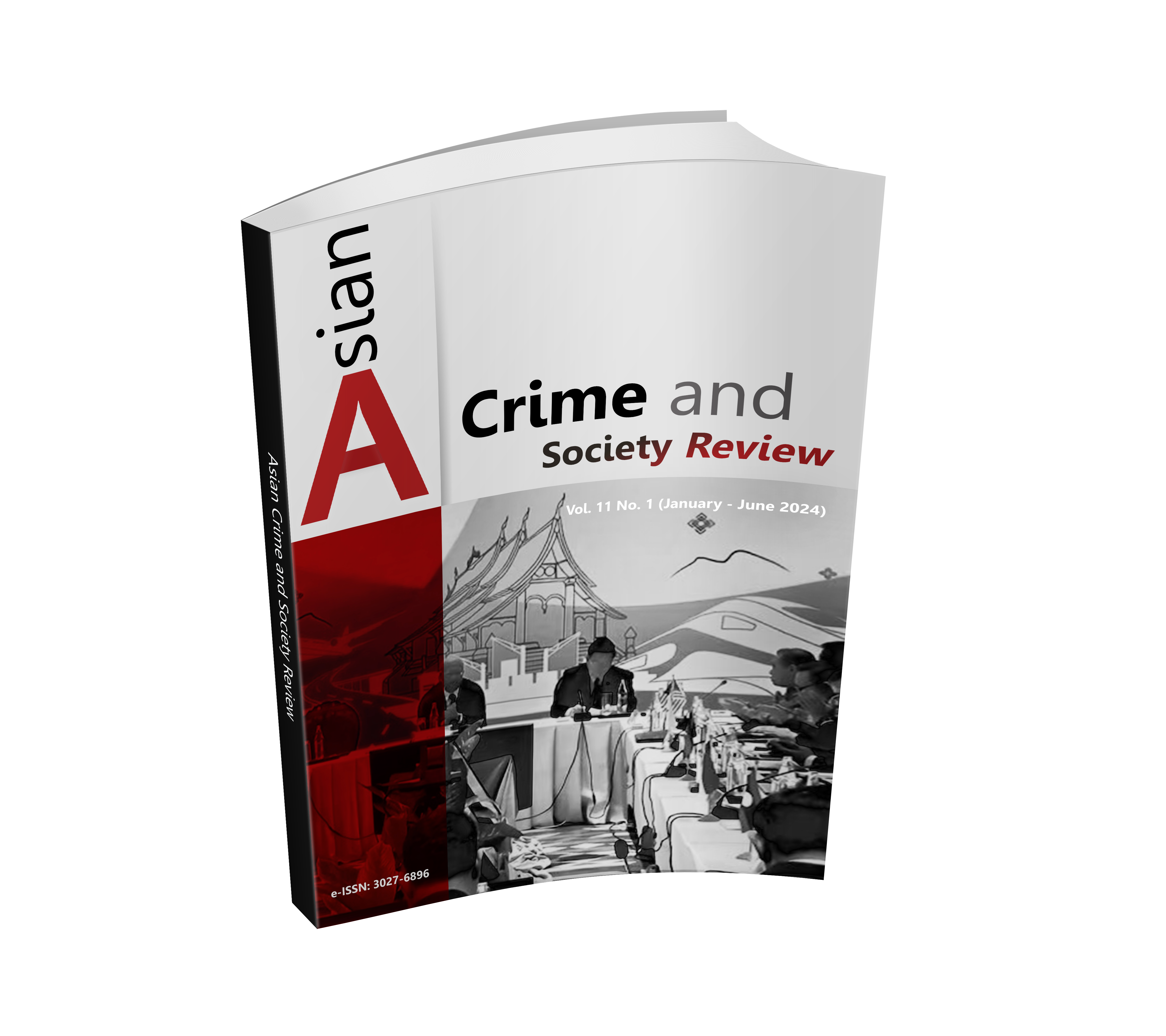MANAGEMENT OF THE PLONG TRADITION, BAN TAKOTAPHI, BURIRAM, THAILAND
DOI:
https://doi.org/10.14456/acsr.2024.5Keywords:
Tradition Management, Participation, Plong TraditionAbstract
The purpose of this research was to study the Management of the Plong tradition at Ban Takotaphi, Buriram, Thailand, using a qualitative approach through in-depth interviews with a sample group comprising individuals from the area, community leaders, and stakeholders. The study found that greater involvement of individuals in expressing their opinions regarding the Management of the Plong tradition at Ban Takotaphi is necessary. Effective coordination in management necessitates collaboration among all community sectors, and fostering cooperation is crucial. In terms of public sector leadership, community members should exclusively participate in events organized by government agencies or community leaders. The primary form of participation among most villagers is through the dissemination of news and information. Regarding the promotion of traditions, comprehensive support and attendance at traditional events organized by government agencies or community leaders are vital. The primary motivation for attending public events is the desire to actively participate in and perpetuate local traditions, thereby contributing with pride to their preservation.
Downloads
References
Chantavanich, S. (2016). Management of Thai Workers Migrating to Work Abroad in the 21st. Bangkok: Thailand Science Research and Innovation.
Cohen, J., & Uphoff, N. (1977). Rural Development Participation: Concepts and Measures for Project Design, Implementation and Evaluation. New York: Cornel University.
Deewattanakul, P. (2022). New Government Management that Affects the Reform of the Government System of Special form of Local Government Organization Bangkok. Rajapark Journal, 16(48), 459-476.
Hirunyahard, R. (2001). Development of Measures to Increase Cultural Village Potentials in Tourism: A Case Study of Ban Nong Khao, Tha Muang District, Kanchanaburi Province. Master of Arts Thesis, Chiang Mai University.
Janthajorn, S. (2010). High-Quality Cultural Research. Maha Sarakham: Isan Research Institute of Arts and Culture.
Oakley, P., & Marsden, D. (1984). Approaches to Participation in Rural Development. Geneva: International Labour Office.
Praneetham, C. (2017). Inspiration of Public Mind for Sustainable Tourism. Panyapiwat Journal, 9(1), 254-264.
Punyawutpreeda, P. (2020). The Political Participation of People: Concepts, Principles, and Promotion. Journal of SaengKhomKham Buddhist Studies, 5(2), 384-400.
Reeder, W. (1947). Some Aspects of the Informal Social Participation of Farm Families in New York State. Doctor of Philosophy Thesis, Cornell University.
Sarnnoi, E., & Sarnnoi, S. (2020). Legal Problems of Community Participation in Local Wisdom and Cultural Promotion and Preservation. Ubon Ratchathani Rajabhat Law Journal, 8(2), 31-45.
Sornpaisarn, B. (2020). 4-Quadrant Multisectoral Collaboration Model for the Prevention and Control of NCDs. Journal of Health Science, 29(5), 747-764.
Souvannavongsa, S., Waiapha, Y., Trakansiriwanich, K., & Inthajak, M. (2022). The Development of Cultural Attractions by Participation of Local Communities: A Case Study of THAT ING HUNG Village, Kaisone Phomvihane City, Savannakhet Province, Lao People Democratic Republic. Journal of Management Sciences, 9(2), 311-337.
United Nations. (1981). Popular Participation as a Strategy for Promoting Community Level Action and Nation Development. New York: United Nations.

Downloads
Published
How to Cite
Issue
Section
License
Copyright (c) 2024 Authors

This work is licensed under a Creative Commons Attribution-NonCommercial-NoDerivatives 4.0 International License.










.png)


